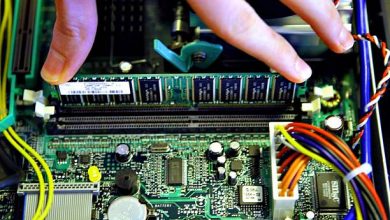How To Be Good At Mathematics(The Ultimate Guide)

How To Be Good At Mathematics: Many people believe they are innately poor mathematicians and cannot become better at it. This is untrue, period. According to studies, hard work is just as important—if not more—than natural skill in becoming a successful mathematician. Simply by being dedicated, you can improve your arithmetic skills. Spend some time each day working on your arithmetic skills until the ideas start to make sense to you. Enough Info

Obtain outside assistance if required. You can improve your skills by working with a tutor, a teacher, or just a math pro. You should also work on forming a positive attitude about math. Many people approach arithmetic with a defeatist mindset and are prone to believe that they will never be proficient in it. Recognize that this is untrue. The majority of people can get better at math with a little more effort. Enough Info
Read Also: How To Get Rid Of Bad Thoughts
Changing your mentality
Don’t believe the lie that you’re not good at math
Many people believe they are mathematically challenged by nature. This might make someone lazy about working hard to get better. Recognize that it’s a misconception that people have a predilection toward math. Everybody can learn math with a little effort, according to studies.
- Math talent can sometimes be inherited. They may learn more quickly in primary school thanks to the early advantage they can acquire from this.
- But most studies show that working hard can boost your arithmetic abilities just as much as a natural aptitude. In actuality, perseverance may ultimately be more fruitful than natural aptitude. https://enoughinfo.com/how-to-be-good-at-mathematics/
- Math-related learning disabilities like dyscalculia might impair your ability to solve mathematical problems. But with persistence and the right care, you can develop your mathematical abilities even if you have a learning handicap. Try not to lose heart. You’re not just not good at math. All you need is practice. How to Step out of Your Comfort Zone
Don’t take math lightly
People’s lack of interest in arithmetic is another factor in their difficulties with it. They accept their lack of mathematical ability or find humor in it. Take math seriously as a subject even though you shouldn’t feel awful about yourself for having trouble with it.
- Mental math exercises can help you cope with the stress of daily life and improve your reasoning abilities. https://enoughinfo.com/how-to-be-good-at-mathematics/
- Accept math rather than ignore it. Math aptitude can be advantageous to you.
Stay inspired
The only genuine route to long-term math skill improvement is practice. There actually isn’t a magic trick that will make your talents instantly better. Simply maintain your motivation. Maintain your academic progress and seek assistance as necessary. You can master mathematics if you put in the necessary effort and time.
Read Also: How To Stop Procrastinating(Tips)
Requesting assistance
Get assistance from your teacher
The majority of teachers love to motivate their students. Asking your teacher for assistance will help you become a better math student. He or she might be able to work with you one-on-one and go over issues after class.
- Do not feel guilty about requesting assistance. Math is difficult for many people, and your teacher has probably dealt with students who struggled with it in the past. Your teacher is motivated by your success.
- Ask for assistance directly, and be sure to fully describe the problem. Never say, “I don’t understand any of this.” Rather, say something like, “I feel like I understand everything up until chapter 3, but polynomials are really perplexing me.” How To Make Samosa (Tips)
Employ a tutor
Consider hiring a tutor if you believe you need a lot of one-on-one assistance. You are permitted to discuss concerns with a tutor a set number of times per week. A good instructor may make math start to make sense to you and improve your understanding of the subject as a whole.
See if you can locate a tutor that deals with individuals with disabilities if you have a learning problem like dyslexia that impacts your proficiency in math. You might be able to locate a local tutor with the help of national groups connected to your handicap. You might be able to get a tutor through a doctor’s recommendation as well.
Have someone else review your work
Ask a math-savvy friend to review your work once you’re finished if you know one. You can enlist the assistance of your parents, a tutor you hired, a math-proficient friend or relative, or a tutor.
Select a patient, knowledgeable explainer if you are extremely perplexed. Although he might be a math prodigy, your cousin might also be irritable and critical. He might get angry with you if you don’t understand something. Ask your sister instead, who is often composed.
Do not be ashamed to ask for assistance. Learning arithmetic can be difficult, and everyone requires assistance at some point.
Read Also: How To Avoid Miscommunication
Consider signing up for an online course
You can consider taking an online course if you want to work on your arithmetic abilities outside of the classroom. Numerous colleges offer online courses that students can take from home, as do universities like Kaplan. How To Treat Cold Feet(Steps and Requirements)
- Online access to course materials like PowerPoint presentations and recorded lectures are offered for free by several universities.
- Additionally, consider auditing a course at a nearby college. If money is a constraint, you can learn for free by auditing a course.
If your school has a math resource center, visit it
If you’re at school, there might be a math resource center there. There are centers on several campuses where students can go to receive one-on-one math tutoring. See if your school has a math center available. Utilize the resource if it is.
- If there isn’t a specific resource center at your school, you might be able to seek assistance through a general resource center.
- Additionally, you might check to see if your lecturer holds review sessions. A review session with a professor can help you better understand a subject if you’re having trouble with it.
Attempt to assist someone else
You can sometimes gain a better understanding of an idea by explaining it to someone else. If a friend is having trouble with calculus when you are finally understanding it, you might consider offering to assist that person. Another option is to start a study group. You can provide assistance if someone is having trouble with something you’re starting to comprehend.
- When assisting, be as explicit as you can in your explanations of the subject matter. Don’t just describe the procedure; also describe why it works.
- If you’re starting to feel very confident in your mathematical abilities, you can consider working as a private teacher for students who are at a lesser level. Your mathematical abilities can be enhanced by explaining math to others. How To Get Rid Of Bad Thoughts
Schedule practice sessions every day
There isn’t really a trick to mastering mathematics. Everything comes down to commitment. Work hard if you want to raise your math score. You must practice daily until you begin to comprehend the fundamental ideas behind math.
- Follow a schedule. Look for opportunities to fit in daily study time. Maybe the early evening is when you normally have some free time. You may arrange to study math every evening after dinner from 6 to 7.
- Try to avoid spending all day studying. Stress may result from this. Every night, spend an hour or so studying.
Read Also: How to Negotiate(Steps and Requirements}
Avoiding distractions while studying
Make sure you’re studying in a setting that promotes concentration if you’re not yet proficient in arithmetic. Find a space that is free from distraction-causing external stimuli before you sit down to practice.
- Find a place where there is little noise or activity. A desk in your bedroom or a quiet coffee shop could be used.
- Reducing outside distractions is important. Turn off your internet connection and put your phone away.
- Opt for instrumental music if you enjoy listening to it while learning. When you’re studying, loud music or music with lyrics can be distracting.
Take each step of an issue at a time
When doing arithmetic, you want to determine how to arrive at a solution. Instead of figuring out the solution in advance, solve the equation step-by-step. Avoid pre-planning and go slowly so you can see how the answer comes to be.
- If dividing is necessary first, focus solely on dividing. If adding comes next, keep your attention there. 100 Romantic Love Messages For Her
- Once you’ve solved the issue, you can go back and review the steps. Investigate the reasons behind and mechanics of the procedure.
Examine wrong responses thoroughly
Your mathematical errors can teach you a lot. Review your procedure if you discover that you have the wrong response. Where and how did you make a mistake? Resolve to solve the issue once more, this time working out how to arrive at the right solution. How To Stop Procrastinating(Tips)
- It’s critical to document your process when addressing mathematical issues. Write out your approach to an issue line by line with a pen. In this manner, you can more simply analyze your work after making a mistake to identify where you went wrong.
Verify your responses
After solving an equation, go through your procedure. Make sure you followed the right procedure and carefully verified all of your calculations. Whether you thoroughly examined your responses, you’re more likely to have succeeded when you check to see if you got the answer properly. Additionally, you’ll develop the practice of double-checking your answers, which will help you perform better on tests.
- You can gain a better understanding of the basic concepts of math by checking your answers. How to Cook Chicken Breast
Read Also: How to Step out of Your Comfort Zone
FAQs & Answers on How To Be Good At Mathematics
1, How can I improve my mathematical skills?
-
- Practice regularly: Consistent practice is essential for improvement.
- Understand the fundamentals: Focus on understanding concepts rather than memorization.
- Seek help when needed: Don’t hesitate to ask teachers or peers for clarification.
- Solve problems step-by-step: Break down complex problems into smaller, manageable steps. How to Build a Sustainable and Healthy Diet Plan (2023)
- Review and learn from mistakes: Analyze errors to avoid repeating them in the future.
2, Is there a specific order in which I should learn math topics?
-
- Yes, mathematics generally follows a sequential order. Start with basic arithmetic, then move on to algebra, geometry, trigonometry, calculus, and so on. Each topic often builds upon the previous ones.
3, How can I overcome math anxiety?
-
- Identify the source of anxiety: Determine what specific aspect of math causes stress.
- Take it one step at a time: Break down problems into smaller tasks to make them less overwhelming. Healthy Aging Tips For Men Over 40 (14 Tips To Stay Healthy)
- Positive affirmations: Remind yourself that you can improve with effort and practice.
- Visualization and relaxation techniques: Use techniques like deep breathing or mental imagery to reduce stress.
4, How can I become a better mathematician?
5, What advice can you provide me to help me get better at math?
Here are some pointers to improve your mathematical abilities:
- • Deepen your understanding of basic mathematics.
- • Allocate time each day for arithmetic practice and problem-solving.
- • Use topic-specific internet resources like math applications, courses, and tutorials.
- • Examine math’s real-world applications to gain a better understanding of how it is used in our daily lives. How to Build a Sustainable and Healthy Diet Plan (2023)
- • Consult your teacher or tutor if you require assistance or have any questions.
Conclusion
It is crucial to practice frequently, study thoughtfully, break difficult issues down into manageable chunks, and maintain a positive attitude if you want to be effective at mathematics. Working with peers or knowledgeable teachers can also aid in filling in any gaps or ambiguous topics. With practice, patience, and effort, anyone can become good at mathematics.




